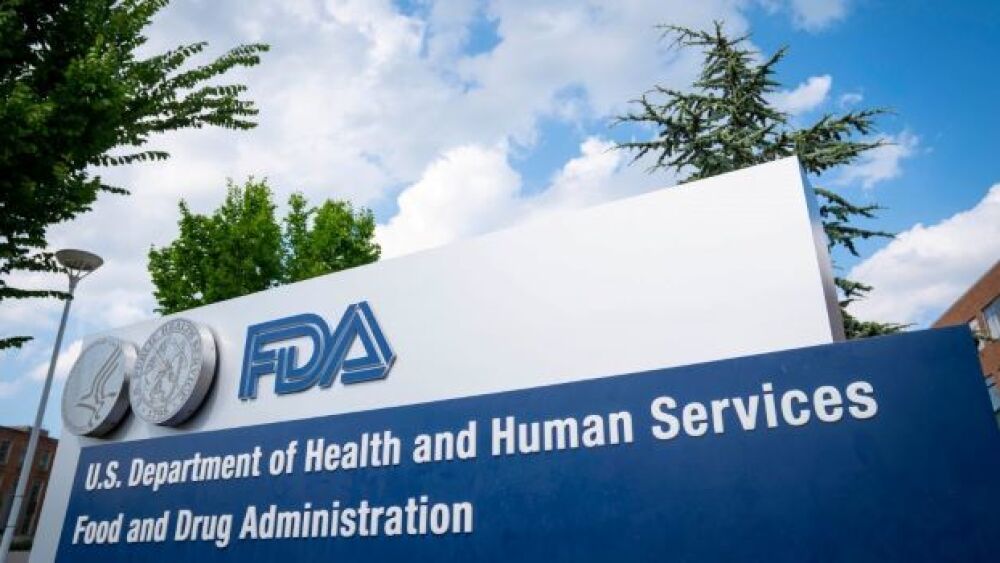Eisai and Biogen have completed the rolling submission of a Biologics License Application for lecanemab drug to the U.S. Food and Drug Administration.
The rolling submission of lecanemab drug for Alzheimer’s disease is complete. (Sarah Silbiger/Getty Images)
Eisai and Biogen have completed the rolling submission of a Biologics License Application for their proposed Alzheimer’s disease drug to the U.S. Food and Drug Administration.
The BLA submission involves lecanemab, an investigational anti-amyloid beta protofibril antibody intended to treat mild cognitive impairment due to Alzheimer’s and mild or early AD with a confirmed amyloid pathology in the brain. Part of the rolling submission is the request for Priority Review.
If the FDA grants the BLA, an action date for the Prescription Drug User Free Act would be set. Depending upon the outcome of the ongoing confirmatory Phase III Clarity study, the companies could submit for full approval of the drug later this year. The FDA will look at the data from this study to confirm lecanemab’s clinical benefit.
Meanwhile, the BLA application will bank on outcomes from the proof-of-concept Phase IIB Study 201 Core trial, involving 856 participants diagnosed with early Alzheimer’s and confirmed amyloid pathology presence. Over 80% of the participants given 10 mg/kg of lecanemab biweekly over 18 months were reported as being amyloid negative based on visual readings.
Other metrics used to demonstrate amyloid reduction were the Alzheimer’s Disease Composite Score (ADCOMS), the Clinical Dementia Rating-Sum-of-Boxes (CDR-SB) and Alzheimer Disease Assessment Scale-Cognitive Subscale (ADAS-cog). Full results were published in the Alzheimer’s Research and Therapy journal in April 2021.
“Eisai employees have spent time with people living with Alzheimer’s disease and their families to truly understand their feelings and challenges and have been working to create new treatments for many years. Our comprehensive medicine creation approach along the Alzheimer’s disease continuum reflects Eisai’s long-term commitment to providing innovative treatments to the people living with AD, their families and healthcare professionals who urgently need new treatment options,” commented Haruo Naito, the chief executive officer of Eisai, in a statement.
Eisai obtained the worldwide rights to research, develop, manufacture and commercialize lecanemab for AD through a deal with BioArctic in December 2007. Eisai then signed an agreement with Biogen in 2014 to jointly develop and market the drug. After that, the FDA granted lecanemab Breakthrough Therapy and Fast Track designations in June and December 2021. In March 2022, Eisai started submitting its application to the Pharmaceuticals and Medical Devices Agency (PMDA) in Japan to get early authorization for the drug, with the goal of winning manufacturing and marketing approval within the year.
“Anti-amyloid antibodies are a new wave of important medicines, which could provide patients and their physicians more options in addressing this complex disease. There is an enormous unmet need in this space, and we continue to make progress in advancing additional treatment options for people living with this devastating disease,” noted Michael Vounatsos, the CEO of Biogen, in the same announcement.
Eisai and Biogen are co-commercializing and co-promoting lecanemab, but Eisai still has the last say on the drug. These new developments regarding lecanemab are a breath of fresh air for Biogen, whose research efforts and rollout of Aduhelm (aducanumab), the first Alzheimer’s drug to be approved by the FDA in 18 years, have been heavily criticized.





